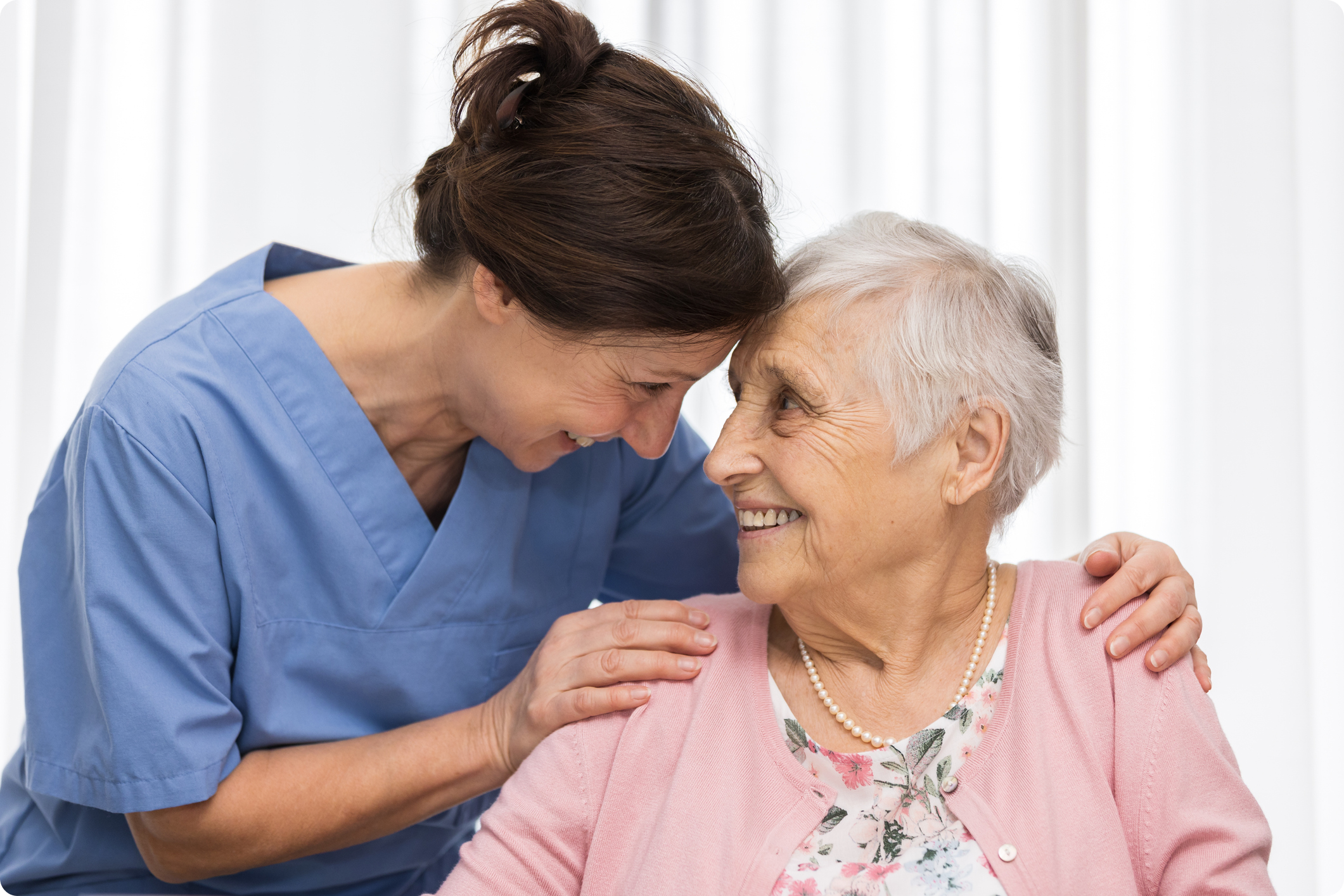Are End-of-Life Doulas for Us?
By Marina McGough
A death positive movement is sweeping across the country and with it, there has been much buzz about the End-of-life Doula. The name is not exactly self-explanatory: doulas are more well known as birth companions. End-of-life doulas are non-medical support persons assisting individuals with their end-of-life journey, with “the labor of dying”, as Barbara Karnes, RN, says.
In order for healthcare professionals– especially those in hospice and palliative care– to fully embrace this role in their scope of practice, it’s important to have an understanding of the doula’s specific skill set and areas of expertise. In the numerous presentations that have been provided by the NHPCO’s End-of-life Doula Advisory Council, there is a recurring theme in the questions and comments we receive: “How does this role differ from a hospice volunteer?” or “Our volunteers and team already do that.”
As the National Director of Volunteer Services for a hospice agency that trains and incorporates volunteer end-of-life doulas into our team, I would like to distinguish between the two roles as seen in our organization. We began laying the foundation for our program in 2017 by first enrolling in a training program and then creating our own with the expertise of an already established End-of-life Doula training company. We were able to launch our End-of-life Doula program in 2018 with a pilot program selecting existing volunteers we felt were ready for the additional responsibilities and were eager to expand the way they served our agency. We then extended this program to all of our agency locations across the country. Our goal for adopting an End-of-life Doula Program was simple: to strengthen our volunteer department, provide continuity of care from pre-hospice to post death, to create better patient and family satisfaction, and provide innovative high-quality hospice care for those we serve.
“End-of-Life doulas are non-medical support persons assisting individuals with their end-of-life journey, with ‘the labor of dying.’” — Barbara Karnes, RN
What are those additional responsibilities for our volunteer doulas? Our doulas learn more about the interdisciplinary team and how to bridge communication among them. In our training program, volunteers learn doula skills such as mindfulness, presence, legacy work/life review, after death support and how to have difficult conversations. Although many volunteers offer these skills as well, I have seen the increased expertise and skill level of a trained End-of-life Doula. I greatly value hospice volunteers and they are “experts” as well. Volunteers are an essential member of the hospice team: They provide much needed companionship to lonely patients, facilitate special activities like painting, going fishing, or something as simple as going outside to enjoy the sunshine, and sit at the bedside of the dying. What better way to honor them than to provide them with the opportunity to grow and advance their skills. I believe every bedside hospice volunteer might aspire to be an End-of-life Doula if given the opportunity to participate in a training. After completing her first doula workshop, April in New Jersey expressed her observation,
“I loved that the training was very experiential. I did not know what to expect and was prepared to have a typical classroom experience. But we learn better and faster when our mind, body, and soul are totally immersed and experience things at a cellular level. As I learned more about being a doula, I also gained a better understanding of who I was, what I needed to work on, and what strengths I have to fulfill my volunteer doula role.”
Establishing an End-of-life Doula Volunteer Program can be a daunting task for some organizations. You don’t have to build a program or a training to incorporate this discipline for your clients. There are many End-of-life Doulas who provide services independently. Make yourself aware of all the resources in your community. Just as your organization may recommend external agencies to assist clients who need additional services, look to End-of-life Doulas as a community resource as well. As palliative care and hospice professionals let’s be a part of the death positive movement, collaborate with end-of-life doulas and transform end-of-life care for our patients– for the better.
______
Marina McGough is the current Chair of the NHPCO End-of-life Doula Council and the National Director of Volunteer Services at Ascend Hospice. Marina has over 20 years’ experience in Volunteer Management and has worked in hospice for the past 14 years. She completed her training as an end-of-life doula in 2017. Following her training, she worked in conjunction with Quality of Life Care to establish a volunteer end-of-life doula program at Ascend Hospice in all of their agencies located across the United States. She is a current member of NEDA, The National End-of-life Doula Alliance.
